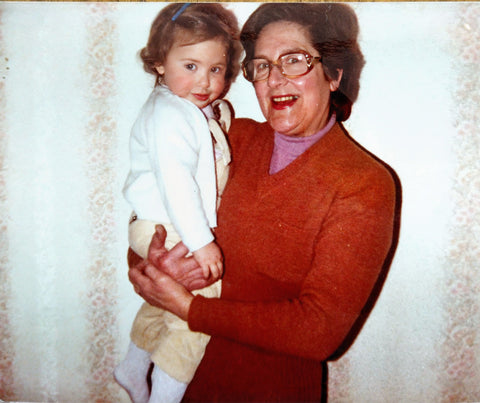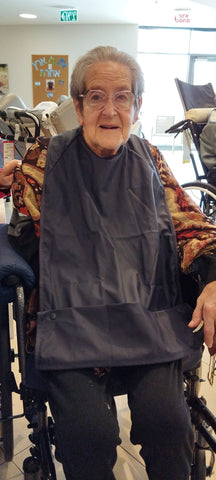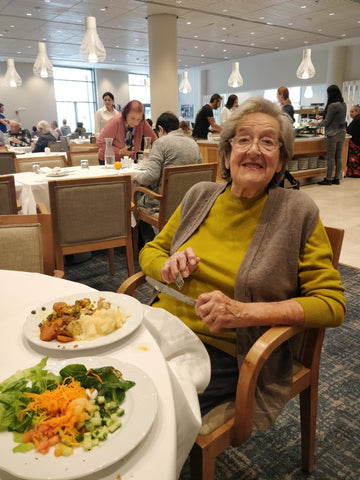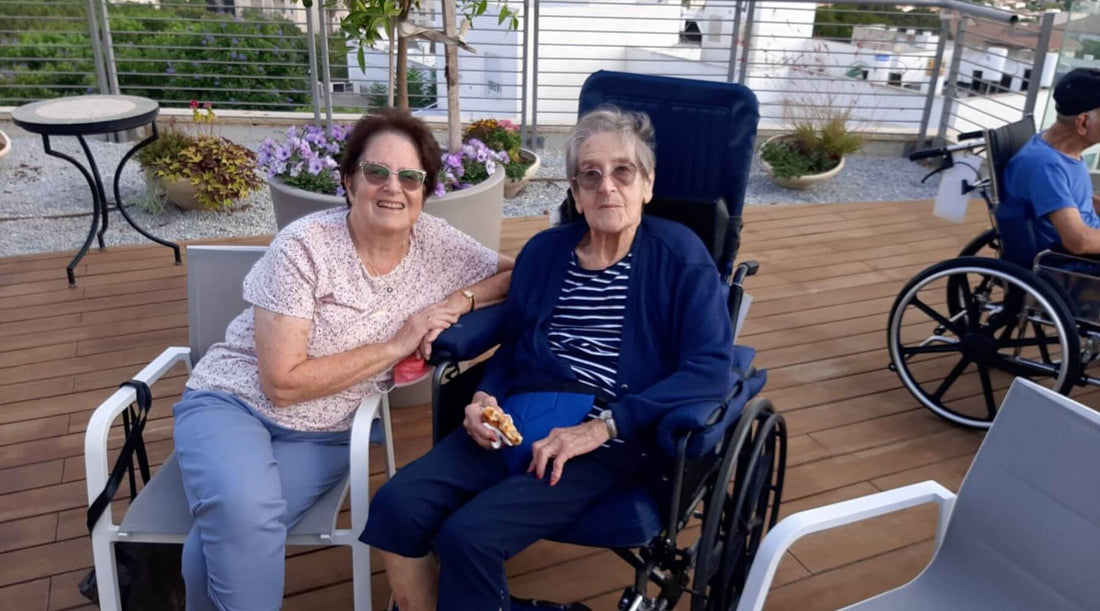Caring for an elderly parent with dementia is a challenging journey that many families find themselves navigating. My grandma was in her 80s, when we noticed things weren’t quite right. Initially attributing it to aging, we soon confronted the reality of dementia.
Anita
It was really hard to accept her diagnosis. She was a strong woman who never held back from expressing her thoughts. 'I’ll call a spade a bloody shovel,' she would say, using a Yorkshire expression to mean she'd tell the truth, whether you liked it or not. She had worked hard since leaving school at 11 during the Second World War and continued working while raising kids in the '50s. Reflecting now, I realise she was one of the first career-minded mothers back in her day, managing a factory with my grandpa, all while raising her family and caring for her two siblings and elderly parents.
An active woman, she loved planting vegetables, growing fruit, and tending to her gorgeous garden. She wouldn’t have needed a gym membership if that was a thing back in the day. Long walks, digging soil, and pruning fruit trees kept her fit and happy.

Dementia Signs
My grandma started repeating herself frequently. We tried telling her she just told us that but a few minutes later she’d say it again. For us it was frustrating to hear the same thing over and over again. We weren’t aware at that stage that it was a sign of the illness. It took us a good few years to understand she can't help repeating herself and we stopped correcting her.
I asked my mum, looking back, what else were signs of dementia. She said she started neglecting her hygiene. Didn’t wash as often as she used to and she’d wear the same clothes a few days in a row.
Dealing with an Aging Mother Who Resisted Help
In her 80s, she started to fall, but she'd get back up and carry on, never one for fuss. Everything had always been her decision until she turned 90, when my mum and uncle decided she needed a carer. She didn’t want in-home care. She wanted to be the independent woman she always was even though we all knew she needed help.
Eventually she agreed to moving into assisted living but she never settled. The unfamiliar surroundings only heightened her confusion. She often referred to the move as a holiday and struggled to adjust to the new layout of her apartment.
Corona
Corona took a toll on her; not being able to see the family or go outside, even for a short walk, her health started to deteriorate. She’d forget what she just said, repeat herself, and talk about people she'd just seen, even though they had passed away years ago.
I’ll be honest, I broke down many times. What happened to my strong, independent grandma? From someone who was so independent, she now needed 24-hour nursing care. It’s hard to see someone you love so much look so weak and be unaware of what’s going on.

Caring For a Person with Dementia; 4 Tips From My Mum
I asked my mum for advice on what she would recommend for someone who just found out their loved one has been diagnosed with dementia. Here's her tips:
- Medical help - get good geriatric doctor
- Make sure they are on the right medication
- If possible the person should be in assisted living or 24-hour care at home
- Where possible let the person maintain some level of autonomy

Conclusion
It was very hard at first to accept that my grandma isn’t the same; I kind of felt like I was saying goodbye to her. Then I understood it’s not so much saying goodbye but accepting her for how she is. She still has sparks of the old Anita, but I don't try to correct her when she mixes the past with the present. I just smile and ask her to tell me more. It's a journey that demands patience, empathy, and a commitment to ensuring the best possible quality of life for those we hold dear.

